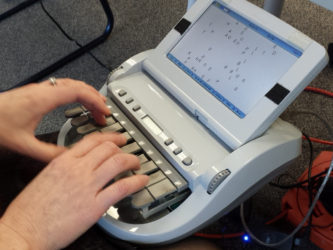The National Court Reporters Association (NCRA), the country’s leading organization representing stenographic captioners, court reporters, and legal videographers, announced that three major industry leaders serving or representing the court reporting and captioning professions have signed on to the Association’s corporate partnership program, NCRA said in a press release.

NCRA welcomed MacCormac College, Chicago, Ill., Magna Legal Services, Philadelphia, Pa., And U.S. and Legal Support, Washington, D.C., as corporate partners.
NCRA’s Corporate Partnership program, which ranges in levels of support from $10,000 to $100,000, aids in business and workforce development efforts by NCRA and the National Court Reporters Foundation (NCRF).
“We continue to focus on the next generation of captioners and court reporters by illustrating that these professions are viable and lucrative career opportunities,” said NCRA executive director and CEO Marcia Ferranto. “We’re excited about the diversity of the organizations that are joining our commitment to closing the shortage gap of stenographers nationally.”
“NCRA recognizes that there are various methods available to capture the spoken word, but our emphasis is on ensuring that both the general public and the legal industry understand that stenography is by far the most effective and desired method,” Ferranto said
The court reporting and captioning professions offer viable career choices that do not require a four-year college degree and yet offer good salaries, flexible schedules, and interesting venues. There is currently an increasing demand for more reporters and captioners to meet the growing number of employment opportunities available nationwide and abroad.
Court reporters and captioners rely on the latest in technology to use stenographic machines to capture the spoken word and translate it into written text in real time. These professionals work both in and out of the courtroom recording legal cases and depositions, providing live captioning of events, and assisting members of the deaf and hard-of-hearing communities with gaining access to information, entertainment, educational opportunities, and more.
